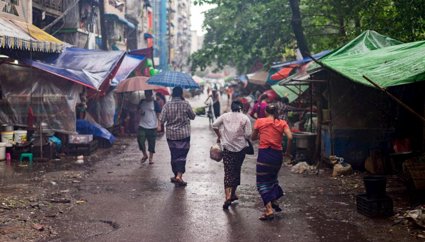
Slawson Awards
By the kind generosity of Fellows Paul and Mary Slawson, the Slawson Awards supported PhD students carrying out geographical field research in the Global South between 2001 to 2022.
About the Award
The Slawson Awards, which ran for over 20 years from 2001 to 2022, supported geographical fieldwork involving development issues with a high social and economic value in the Global South. Over 60 PhD fieldwork projects were funded by the Awards, promoting positive social impact and cultural understanding between the award recipients and the geographical area being researched. The Awards supported projects in geography and related disciplines (such as anthropology, sociology and development economics), with a particular focus on interdisciplinary studies. A full list of projects supported by the award can be found below.
For PhD students interested in applying for funding to support fieldwork, please explore our other grants for PhD students
Slawson Award recipients 2001-2022